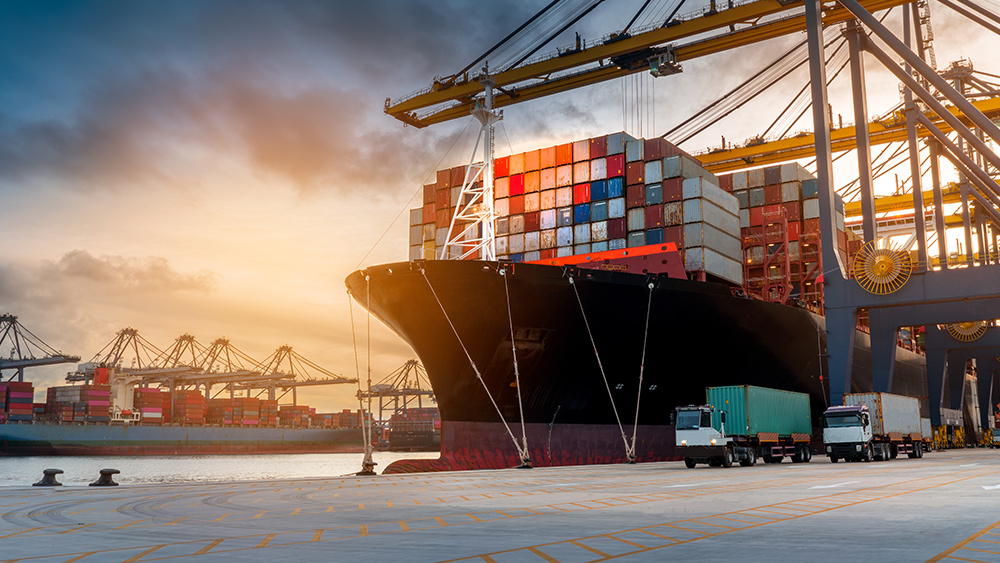Dockworkers at Southern California ports have been working without contracts since July
04/11/2023 / By Belle Carter

Dockworkers at the Los Angeles and Long Beach ports returned to their posts on Friday night, April 7, ending a 24-hour shutdown over contract negotiations.
The said workers have been working without contracts since last summer. They have been kept on the job by the International Longshore and Warehouse Union (ILWU), which signed a “no stoppages” promise with the port operators and mandated the workers to keep silent while talks progressed.
The union is several months into negotiating a new contract, which is focused on wages and the role of automation. The old contract, which covered more than 22,000 workers at 29 ports, expired on July 1, 2022.
The Pacific Maritime Association (PMA), which represents shippers at the negotiating table, said the ILWU had taken a concerted action to withhold labor.
“A majority of the jobs for last night’s shift went unfilled, including all jobs for cargo-handling equipment operators needed to load and unload cargo,” the PMA said in a statement. “The workers who did show up were released because there was not a full complement of ILWU members to operate the terminals.”
But ILWU posted a contradicting statement on Friday, saying its members were “still hard at work and committed to moving the nation’s cargo.” It said several thousand members attended a monthly meeting Thursday evening, April 6.
The temporary closure has heightened fears about a logistics infrastructure that has never fully recalibrated since the Wuhan coronavirus (COVID-19) pandemic delays. It has also directed the nation’s concern on the high-stakes labor negotiations playing out at the ports.
“This is quite clearly a wake-up call to the ports’ operators,” said Harley Shaiken, a professor emeritus at the University of California, Berkeley. “This process hasn’t just been slow, it’s been inching along with very high stakes in the balance.”
The Southern California ports handle nearly 40 percent of imports from Asia, but goods movement has fallen sharply in recent months.
“It’s important that things return to normal as quickly as possible,” said international trade economist Jock O’Connell, who noted that local ports have lost considerable business to their rivals on the East and Gulf coasts. U.S. retailers and manufacturers redirected cargo following a huge backlog in San Pedro Bay that began in 2020. He warned that some of that business may never come back as the stoppage will create a ripple effect, affecting a myriad of jobs tied to the movement of cargo through the region. (Related: LA Port’s October imports drop 28% year-over-year as labor negotiations drag on.)
Union not being transparent about contract negotiations
A dockworker told the World Socialist Web Site (WSWS) he was confused as to how the stoppage started and why it ended so quickly.
“The union said everything is working as normal today. I don’t know what the hell is going on,” the dockworker said. “We’re in the dark for the most part. The world is erupting and we’re just existing. We’re all over it and just want to work under a fair contract.”
Meanwhile, other workers gave indications that the shutdown may have been a wildcat action, or an industrial action initiated by rank-and-file unionized workers without the leadership’s authorization.
“Last night the strike began,” one worker said. “Word is tonight same will happen. A-books are saying swing clerks and crane operators will not be showing up until the contract is signed.”
There have been multiple unofficial stoppages in recent months, including last month when workers shut the Port of L.A. for an hour as they took their lunches together. In November, Port of Oakland workers closed down three terminals over payroll issues. Last summer, independent truckers blocked ports to protest a new state law that threatened their independent status.
On March 24, the National Retail Federation, American Trucking Associations, and the U.S. Chamber of Commerce sent a letter to President Joe Biden asking the administration to impose a contract on the dockworkers similar to how the administration shut down an earlier planned rail strike on the rail carriers’ terms.
As per the letter, West Coast dockworkers could still do significant damage even with the most limited of job actions despite diversions of cargo to the United States. It also expressed fears that job actions may spread out of the control of the ILWU apparatus.
“The temporary action by the workers also underscores the immense fragility of the U.S. supply chain, which the ruling elite is relying on for its war planning against Russia and China,” Dan Conway of WSWS wrote. “The diversion of traffic to East Coast ports is likely not assuaging the worries of shipping companies as much as they had hoped for because unrest continues to mount among dockworkers there as well.”
Collapse.news has more on the collapsing freight industries in the United States.
Watch the video below that talks about how the port shutdowns could be an emergency embargo.
This video is from the Heaven Reigns channel on Brighteon.com.
More related stories:
Freight companies expect “muted peak season” due to waning retailer demand.
Shipping rates drop 75% amid plummeting US retail demand.
Port of Los Angeles director: US supply chain at risk if rail service does not improve.
Sources include:
Submit a correction >>
Tagged Under:
automation, bubble, collapse, contract negotiations, dockworkers, economic collapse, enslaved, ILWU, imports, International Longshore and Warehouse Union, labor, labor dispute, logistics, market crash, operators, Port of Long Beach, Port of Los Angeles, risk, shipping demands, shutdown, supply chain, transportation, union, wages, working conditions
This article may contain statements that reflect the opinion of the author
RECENT NEWS & ARTICLES
COPYRIGHT © 2022 EconomicRiot.com
All content posted on this site is protected under Free Speech. EconomicRiot.com is not responsible for content written by contributing authors. The information on this site is provided for educational and entertainment purposes only. It is not intended as a substitute for professional advice of any kind. EconomicRiot.com assumes no responsibility for the use or misuse of this material. All trademarks, registered trademarks and service marks mentioned on this site are the property of their respective owners.




















